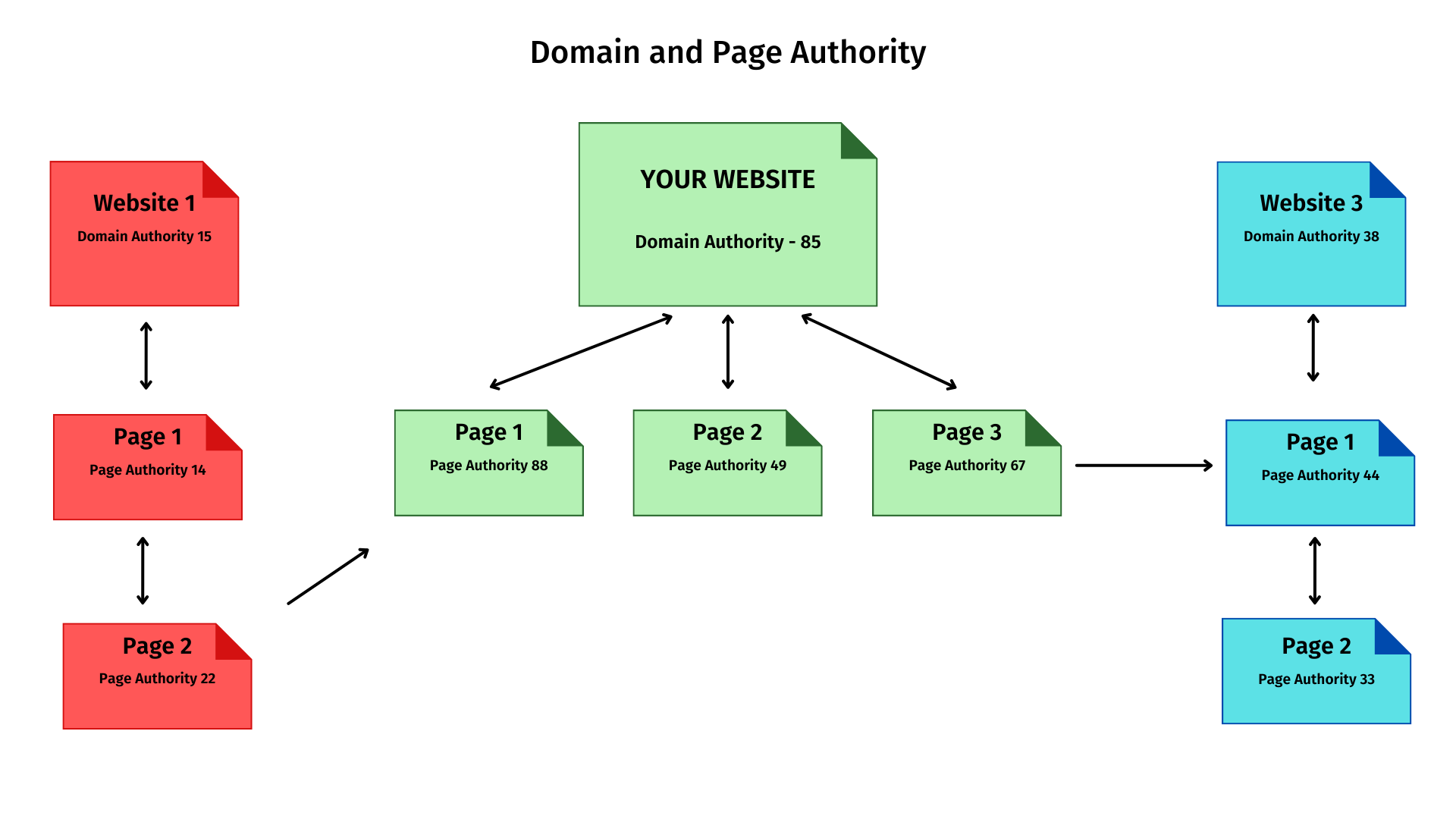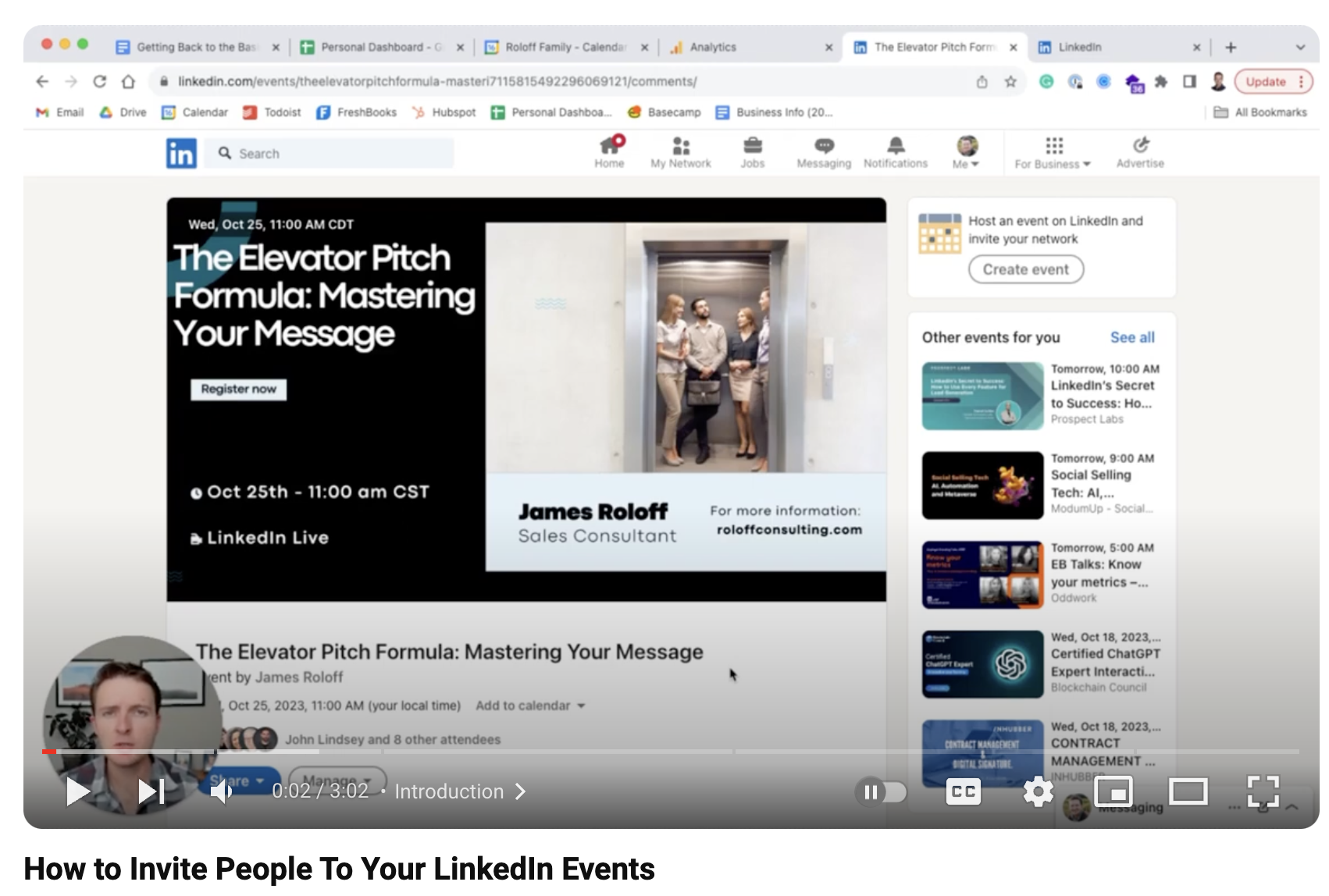Establishing Authority in The Digital World

You’ve probably heard the saying, “It’s not what you know, but who you know.”
And this saying certainly has some validity to it, especially in traditional sales and marketing, where relationships are vital to building trust.
But in the digital world, the saying should be, “It’s not just what you know, but how well you're known for what you know.”
Establishing oneself as an authority can significantly elevate your credibility, build trust with your audience, and open doors to new opportunities.
In this week’s Sell with Social, we will provide actionable strategies for salespeople and business leaders aiming to cement their status as industry experts online.
Understanding Authority and Its Impact
Authority is not just about having extensive knowledge; it's about being recognized for that knowledge and having the power to influence others. In the realm of business, this influence can translate into trust, higher sales, and a loyal customer base.
Take, for example, industry leaders like Seth Godin in marketing or Simon Sinek in leadership. Their authority in their respective niches has turned them into household names, bringing them immense opportunities for speaking, consulting, and more.

Simon Sinek has built up a reputation as an authority figure in the space of leadership coaching and brand building. This was done not only through the educational content that he has published but also because other people have found that content to be helpful.
Authority is a combination of both the content you create + recognition by others.
Those of us who have worked in SEO (Search Engine Optimization) are familiar with this concept. Google’s algorithm is heavily based on “Domain authority,” which measures authority for a given website.
Google’s search engine rankings utilize authority much like we do in social circles. In short, a website has more authority based on the number of other websites that link to it. Further, the higher the authority of the websites that link back, the more valuable those links are.
This leads to a situation where the best way to improve your search engine rankings is to create educational content AND have other websites link back to those pages, signaling that the content is indeed valuable.

Which is just the algorithm’s way of saying, “It’s not just what you know, but how well you're known for what you know.”
In-person, online, or through search engines, the benefits are clear - if you can establish yourself as an authority, you’ll increase your online visibility, build trust, and generate more opportunities for yourself and your business.
How To Build Your Authority
So now that we’ve talked about what authority is and why it’s important, the next obvious question is - how?
The process of developing authority itself is simple, but not necessarily easy. You can’t become the Simon Sinek of your topic overnight. However, you can start building that authority today.
Like many things in life, authority is a gradual process that compounds. The more consistent you are with your efforts, the better results you will have.
Let’s break down three steps you can take to start building your authority.
Step 1: Cultivate Expertise and Share Knowledge
The first and arguably most important step in becoming an authority is to know what you’re talking about.
But here’s the thing: you don’t need to be an expert! You simply need to know more than the people that you are teaching.
I frame this in a Learn > Do > Teach approach.
Learn: Deepen your knowledge by staying abreast of your field's latest trends, research, and developments. This can be through webinars, articles, books, courses, conversations, etc. Become obsessed with continual education.
Do: Apply your knowledge by taking action with it. Implement what you learn in your own business or with your clients. Get real-world experience by consistently finding ways to apply the knowledge from the content you are consuming.
Teach: Solidify your learning by teaching others. Regularly produce and share insightful content that showcases your expertise. This could be social content, blog posts, videos, webinars, or podcasts. Ensure your content solves problems, answers questions, or provides unique insights into your industry.

Creating educational content is the foundation of building authority. So always start here!
Step 2: Establish an Online Presence
You’ll also need somewhere to build your authority online. You need to establish a location where your audience can consume your educational content and network with you.
For many people, their social media profiles are a great place to start with their online presence. This means updating your profile to include a professional headshot, information about what you do, and highlighting ways people can work with you.
However, if you are truly trying to build your authority, I also recommend having a website. This can be your company website (if you are a founder/leader) or a personal website.
Even something as simple as an About.Me page can be a “landing page” for your activity. This way you can set up links and provide a brief description of who you are and where people can engage with your educational content.

You also need to ensure that your content is discoverable. Follow digital best practices to improve your visibility in search and social results. This means being aware of keyword usage, adding links to relevant content, and using technology/platforms that are current to today’s web standards.
Step 3: Network and Collaborate
After you’ve created your content and built your online presence, the final step is to create that high authority network.
This is where the “how well you're known for what you know” happens.
Authority is derived from other people recognizing the work that you are doing and the value that you are bringing through the content you create.
In the digital space, this means you and your content are being referenced as valuable by others:
- In Web Links - Other websites link to your content on their pages. This is where domain and page authority help to increase your rankings in search results. The more relevant the keywords and content, the more it improves your authority.
- On Social Media - You are sharing your content, actively engaging with comments, and forming industry-related connections. People see your name showing up regularly, and you develop a personal brand as a trusted expert.
- Through Communities - You actively participate in online forums, social media groups, and professional networks related to your field. You participate by presenting relevant topics, answering questions, providing feedback, and sharing useful resources.
Fundamentally, this means authentically engaging with your network.
It’s finding ways to collaborate, connect, and share your knowledge with others. These people, in turn, will help raise your authority by providing valuable visibility back to you.

I want you to consider how you are viewed in your community. Do people know what you know?
Building authority is a vital part of a digital sales strategy, so it’s essential to be intentional with your authority-building approach.
You need to become a trusted expert that people want to work with.
Take the following action items this week:
- Teach a New Skill - Think of something new that you recently learned and implemented in your life/business. Can you teach it to others? If so, create that content. It can be as simple as a text post or a short video.
- Share Your Content - Now, share that content on a digital platform. Publish it through a channel that enables you to reach a wider audience. This could be LinkedIn, YouTube, email, or a blog.
- Engage Your Community - And finally, engage the community with your content. Tag others, respond to their comments, and encourage others to share your post. This is how you scale your results.
